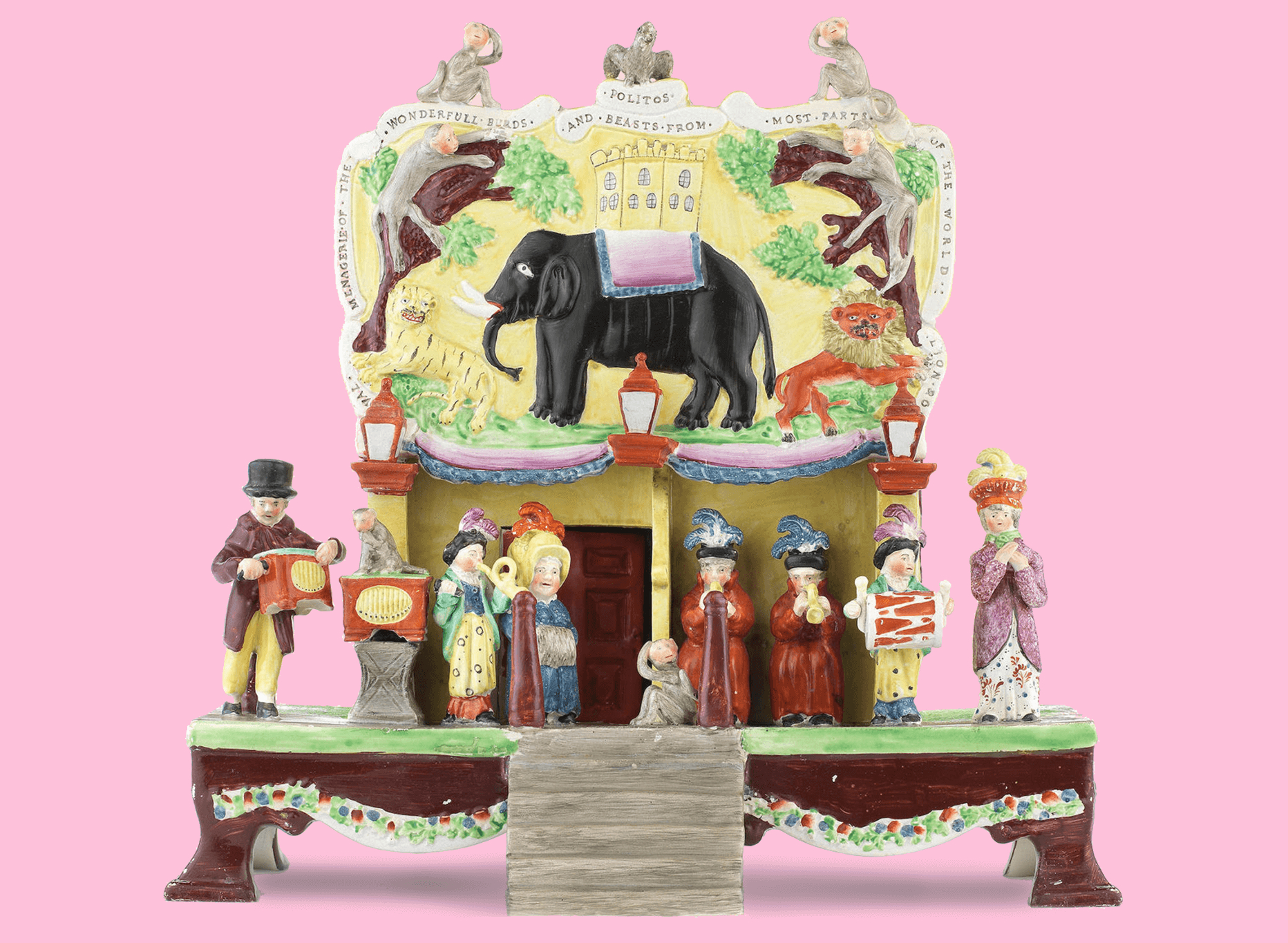The Legend of Gelert the Dog
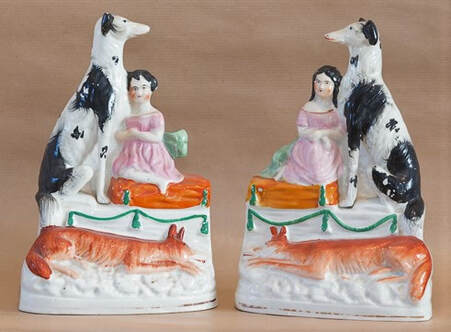
One of the best known and loved folk-tales in Wales is the story of a faithful hound, and the Staffordshire potters were as always, quick to capitalise on this sad and poignant tale.
The story goes that in the thirteenth-century, Prince Llywelyn the Great had a palace at Beddgelert in Caernarvonshire, North Wales. The Prince was a keen hunter, and spent much of his time in the surrounding countryside. He had many hunting dogs, but one day when he summoned them as usual with his horn, his favourite dog Gelert didn’t appear, so regretfully Llywelyn had to go hunting without him.

When Llywelyn returned from the hunt he was greeted by Gelert who came bounding towards him… his jaws dripping with blood. The Prince was appalled, and a horrible thought came into his mind… was the blood on the dog’s muzzle that of his one-year old son? His worst fears were realised when he saw in the child’s nursery, an upturned cradle and walls spattered with blood! He searched for the child but there was no sign of him. Llywelyn was convinced that his favourite hound had killed his son.
Mad with grief he took his sword and plunged it into Gelert’s heart. As the dog howled in death, Llywelyn heard a child’s cry coming from underneath the upturned cradle. It was his son, unharmed! Beside the child was an enormous wolf, dead, killed by the brave Gelert. Llywelyn was struck with remorse and carried the body of his faithful dog outside the castle walls and buried him where everyone could see the grave of this brave animal, and hear the story of his valiant fight with the wolf. To this day, a cairn of stones marks the place, and the name Beddgelert means in Welsh ‘The grave of Gelert’. Every year thousands of people visit the grave of this brave dog.
More Figures of the month

Rare figure of Victorian card playing
At first glance, this may appear to be an ordinary arbour figure. But upon closer inspection, one can see these three people are engaged in a game of cards.
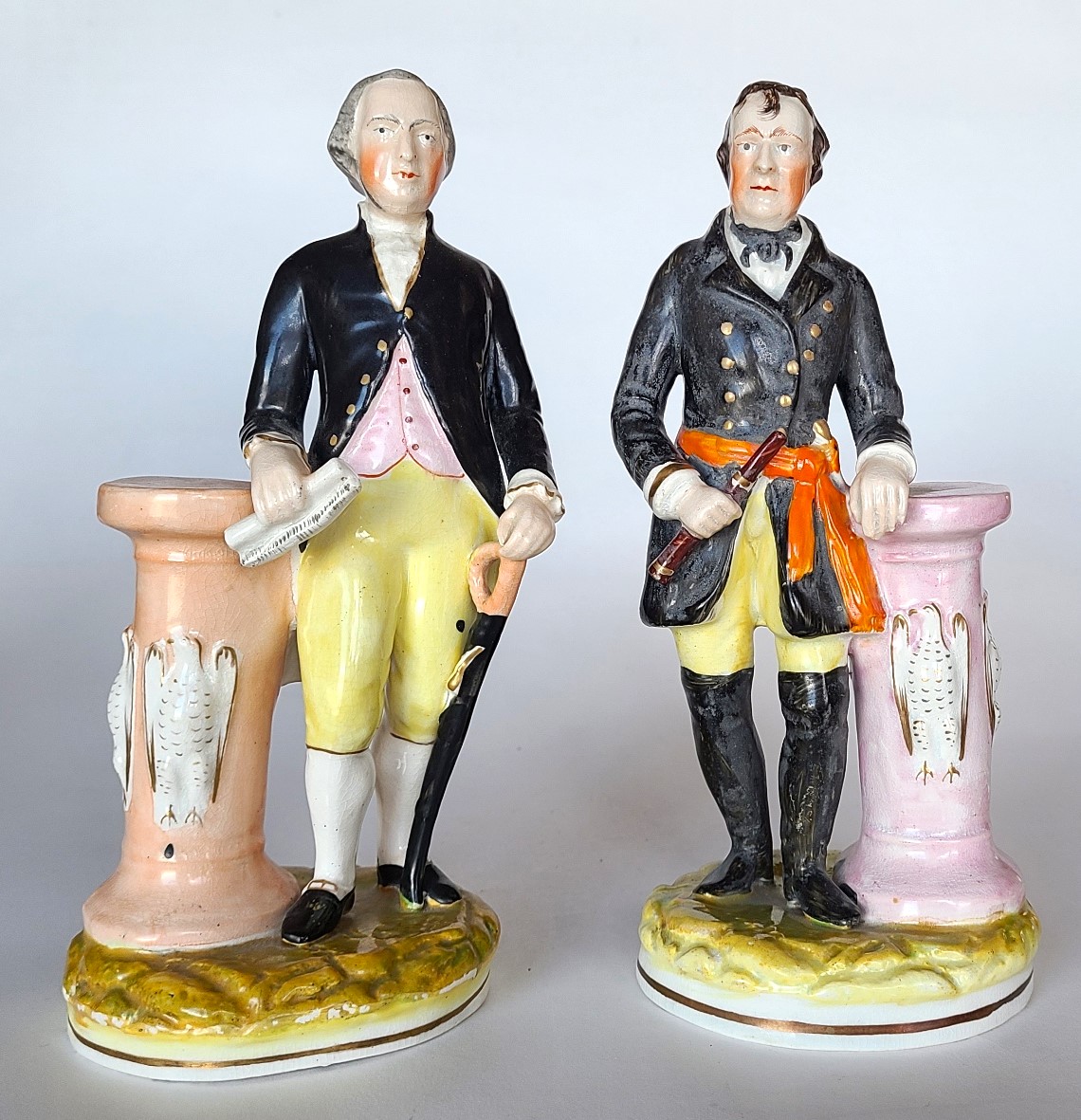
George Washington and Zachary Taylor
This is a very rare pair of figures portraying George Washington and Zachary Taylor. They stand approximately 9” and 9.1″ tall, and date to approximately 1850.
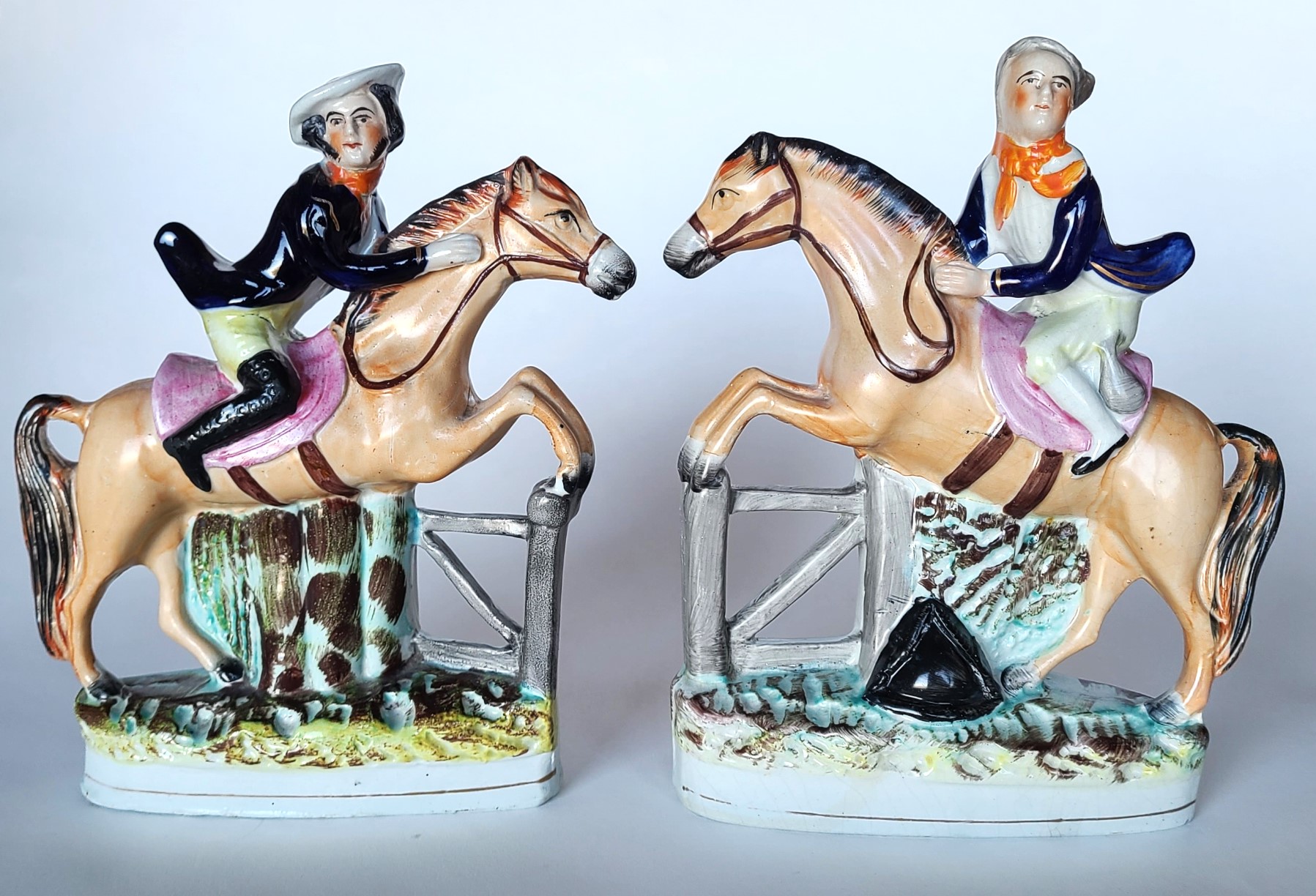
Tam O’Shanter and John Gilpin
This is a very rare pair of figures portraying Tam O’Shanter and John Gilpin. They stand approximately 8.6″ and 9.0″ tall, and date to approximately 1845.
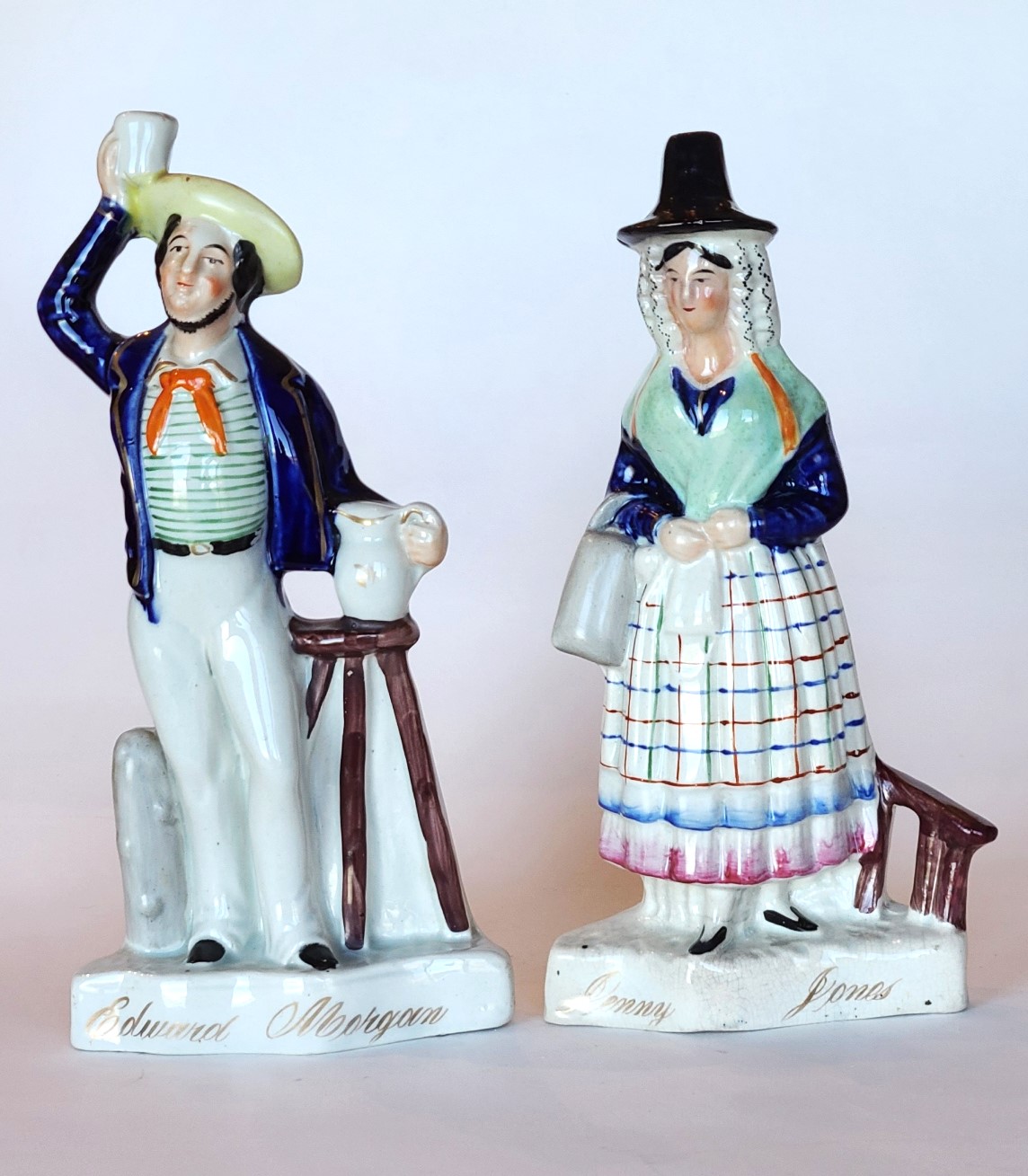
Edward Morgan and Jenny Jones
This is a rare pair of figures portraying Edward Morgan and Jenny Jones, titled with gilt script. The romantic tale of Morgan and Jones was set to music in 1825 by Charles James Mathews.
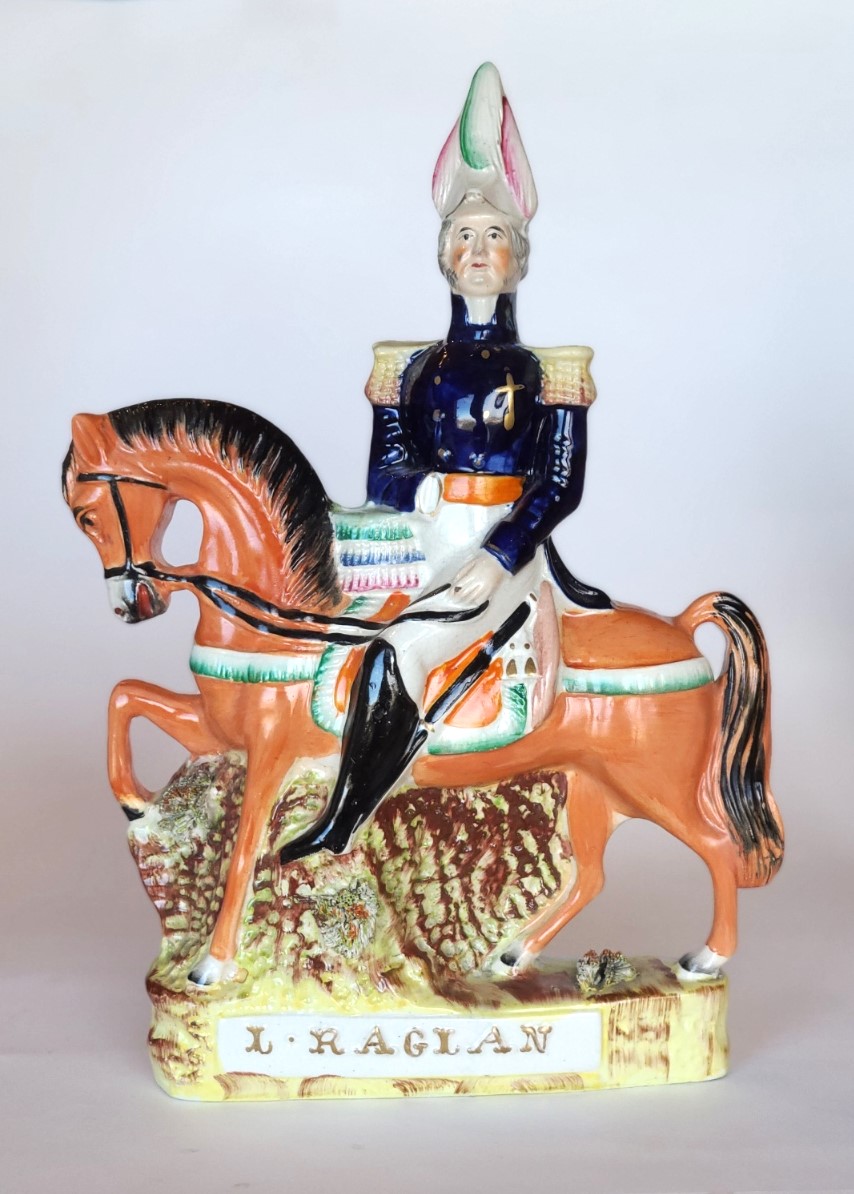
Field Marshal Fitzroy Raglan
This is a rare figure of Field Marshal Fitzroy Raglan. The figure stands about 12 1/4” tall and dates to about 1854.
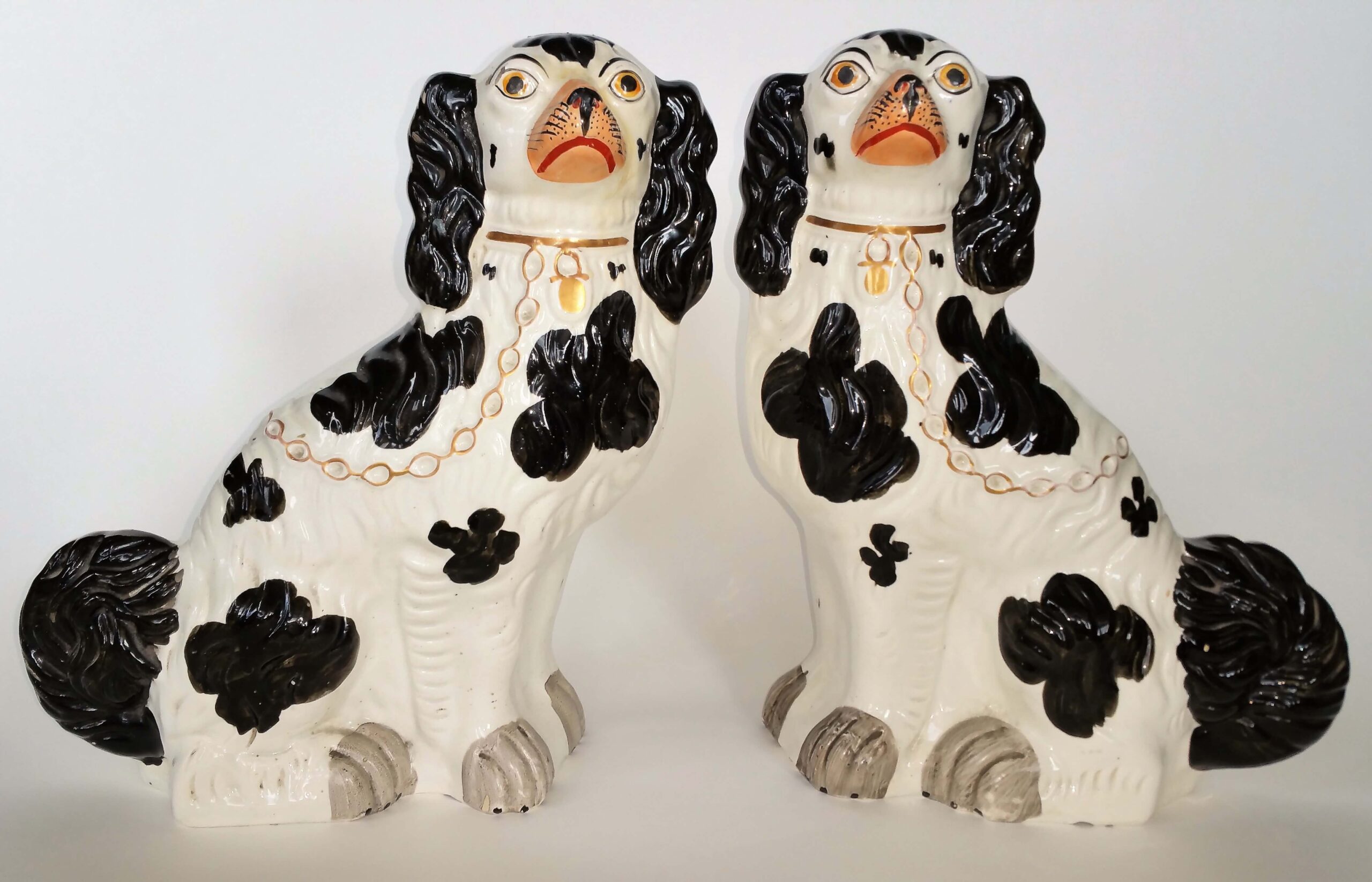
Black and white spaniels
This is fine pair of #1 black and white Staffordshire spaniels. They have a raised number one on the underside, designating them as the largest in a series of six sizes, number six being the smallest.
Membership
We warmly welcome new members – join us for free!
Wherever you are in the world, whether you are an experienced collector, a researcher interested in the folk art of England, or just someone who is intrigued by Staffordshire figures, please join us and get the rest of this year for free! Stay with us next year and pay an annual fee of £45 / $50 per household in January.
